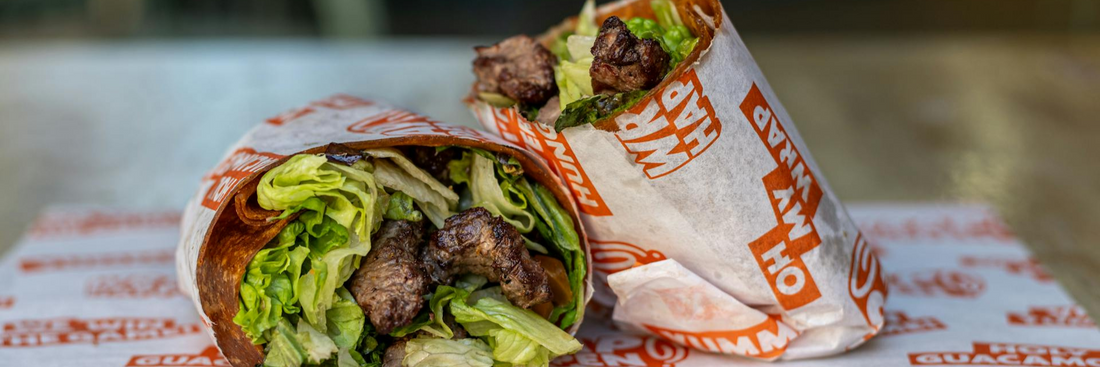How much does a Mexican restaurant make? With growing demand for tacos, burritos, and more, Mexican restaurants offer strong earning potential. Whether it’s a taco truck or a full-service spot, this guide breaks down how much revenue you can expect, and what affects your bottom line.
- How to Open a Mexican Restaurant – A Complete Guide for New Restaurateurs
- How to Open a Taco Business in 2025: A Flavor-Packed Guide to Getting Started
- Restaurant Franchise Cost: How Much Does It Take to Open in 2025?
Why Mexican Restaurants Are a Popular F&B Investment

The popularity of Mexican cuisine has been on a global rise, making it a lucrative option for food and beverage investors. Dishes like tacos, burritos, and quesadillas have become staples in many countries, reflecting a growing appetite for Mexican flavors and culinary traditions. This demand not only influences consumers but also opens various avenues for entrepreneurs, resulting in multiple restaurant formats:
- Fast Casual: Eateries that offer higher quality than fast food while remaining affordable and quick.
- Food Trucks: A flexible model that allows for lower overhead and the ability to tap into local events or high-traffic areas.
- Dine-In Establishments: Traditional restaurants that provide an extensive menu and a vibrant dining experience.
- Franchise Models: Established brands that offer a recognizable name and operational support.
Additionally, Mexican cuisine's adaptability to local ingredients and taste profiles allows new restaurants to tailor offerings, enticing a broader range of customers. This flexibility contributes significantly to the success and popularity of Mexican restaurants.
Revenue Potential: How Much Does a Mexican Restaurant Make Per Month?

National Averages (U.S. & Canada)
The revenue a Mexican restaurant can generate monthly varies significantly based on various factors. Here’s a breakdown of expected gross revenues:
- Small Independent Taco Shop: Typically earns between $25,000 and $60,000 per month. This figure reflects a smaller operation, often serving a niche market.
- Full-Service Casual Mexican Restaurant: Here, revenue can range from $80,000 to $150,000 per month. These establishments often have a more extensive menu and a higher number of diners.
- Franchised Locations: Successful franchised restaurants can exceed $200,000 per month in prime locations, driven by established brand recognition and consistent customer traffic.
Influencing Factors
Various elements impact the revenue potential of a Mexican restaurant. Some of the key factors include:
- Location: Urban areas generally see higher foot traffic and demand compared to suburban areas, which can affect overall revenue.
- Format: The choice between dine-in, delivery, food truck, or franchise significantly alters sales numbers, as each has different operational models and customer reach.
- Menu Pricing & Turnover Rate: Pricing strategy and how quickly dishes are sold can affect the total earnings. Higher turnover rates can enhance revenue.
- Alcohol Sales: Selling alcohol can provide a high-margin upsell opportunity, making it an attractive revenue stream for many establishments.
Cost Breakdown – What Are the Typical Operating Expenses?

Common Monthly Costs
Understanding the cost structure is vital for determining profitability in the restaurant business. Common operating expenses include:
- Food & Beverage: Typically, these costs account for 25–35% of revenue, depending on menu pricing and the sourcing of ingredients.
- Labor: This includes wages for kitchen and service staff and usually ranges from 20–30% of total revenue.
- Rent & Utilities: Location costs generally take up about 10–15% of revenue, varying by city and neighborhood.
- Marketing, Tech, and Licensing Fees: These can range from 5–10% of revenue, essential for attracting and retaining customers.
Overall, total operating costs can average around 70–80% of gross revenue.
Sample Profit Margin
Finally, it's important to gauge what a Mexican restaurant could potentially bring in as profit. The average net profit margin for the industry sits around 10–15%. For instance, a restaurant making $100,000 a month could realistically clear $10,000 to $15,000 in profit after all expenses are paid.
How Much Does the Owner of a Mexican Restaurant Make?

Owner-operators of Mexican restaurants typically take home about 10% to 20% of the net profit after covering all restaurant expenses.
For those who work full-time managing their establishments, the income can be significantly higher, combining a set salary with their share of the profits. This dual income approach means that engaged owners might see a more consistent financial return.
On the other hand, owners who adopt a passive role, often seen with franchise investments or absentee ownership, can expect to earn around 5% to 10% return on investment (ROI), depending on the terms laid out in their agreements.
Profit Potential by Business Model

1. Taco Truck or Mobile Cart
The taco truck model boasts a lower startup cost, generally ranging from $40,000 to $70,000. This affordability allows new entrepreneurs to enter the market with reduced financial risk.
- Revenue: Taco trucks can see monthly revenue between $10,000 and $30,000.
- Profit margins: Due to low labor and overhead costs, profit margins typically hit between 15% and 25%, offering a favorable return on investment.
2. Fast Casual Mexican Restaurant
Fast-casual dining has become increasingly popular, with moderate startup costs typically falling between $150,000 and $300,000.
- Revenue: Monthly revenue can range from $60,000 to $120,000.
- Profit: Profit margins are slightly lower than those of taco trucks, sitting between 10% and 18%. However, the potential for high foot traffic can significantly enhance sales.
3. Full-Service Sit-Down Restaurant
Investing in a full-service sit-down restaurant requires a higher investment, generally between $300,000 and $600,000 or more.
- Revenue: Monthly revenue for these establishments can be between $80,000 and $150,000.
- Profit margin: Profit margins are usually tighter, around 8% to 12%, mainly due to higher labor costs, increased rents, and overhead.
4. Mexican Franchise (e.g., QDOBA, Taco Bell)
Franchising can be an effective way to enter the restaurant industry, though it comes with its own costs.
- Franchise fees: These can vary widely, typically running between $25,000 and $45,000 or more.
- Total investment: Franchise operations may require a total investment between $300,000 and $1 million.
- Revenue potential: High-performing franchises can pull in revenue between $1 million and $2 million per year.
- ROI: The return on investment varies greatly based on brand strength and royalty agreements.
How to Increase Profit in a Mexican Restaurant

Upsell High-Margin Items
One effective strategy to boost profits is by upselling high-margin items. This could include:
- Add-ons like guacamole, extra proteins, and specialty drinks.
- Alcohol options such as beer, margaritas, and tequila shots can significantly increase the average ticket price.
Cost Control
Maintaining control over costs is vital for profitability. Consider the following strategies:
- Implement portion control to minimize waste.
- Negotiate with suppliers for better pricing or explore local options for fresh ingredients.
- Reducing food waste through efficient inventory management can also contribute positively to the bottom line.
Diversify Revenue
Exploring multiple revenue streams can enhance profit margins. Options might include:
- Catering services, which can provide high returns during events.
- Delivery and takeout menus to tap into a growing market.
- Offering pre-packaged products, such as fresh salsa or branded sauces, can also create additional revenue opportunities.
Common Mistakes That Hurt Profitability

Several pitfalls can hinder the profitability of a Mexican restaurant:
- Overextending the menu can lead to wasted ingredients and inefficient kitchen operations.
- Pricing items too low may result in insufficient margins, making it difficult to cover costs.
- A poorly designed kitchen layout can slow down service and increase wait times.
- Neglecting the use of popular delivery apps or online ordering systems can lead to missed revenue opportunities.
Case Studies & Real-World Examples

Here are a couple of illustrative scenarios that demonstrate different paths to success in the Mexican restaurant space:
- How This Toronto Taco Bar Hit $80K Monthly in Year 1: By focusing on high-quality ingredients and a strong social media presence, this taco bar managed to secure a loyal customer base and generate substantial monthly revenue in its debut year.
- Food Truck Owner Earns $5K Profit Per Month With $60K Setup: This owner utilized a flexible operating schedule and local events to maximize exposure, leading to sustainable profit with a relatively low initial investment.
Conclusion
In summary, running a Mexican restaurant can certainly be profitable, but the level of success is contingent upon factors like the chosen business format, pricing strategy, and operational execution. Notably, smaller setups like food trucks can prove to be more lucrative than larger, more complex full-service restaurants.









